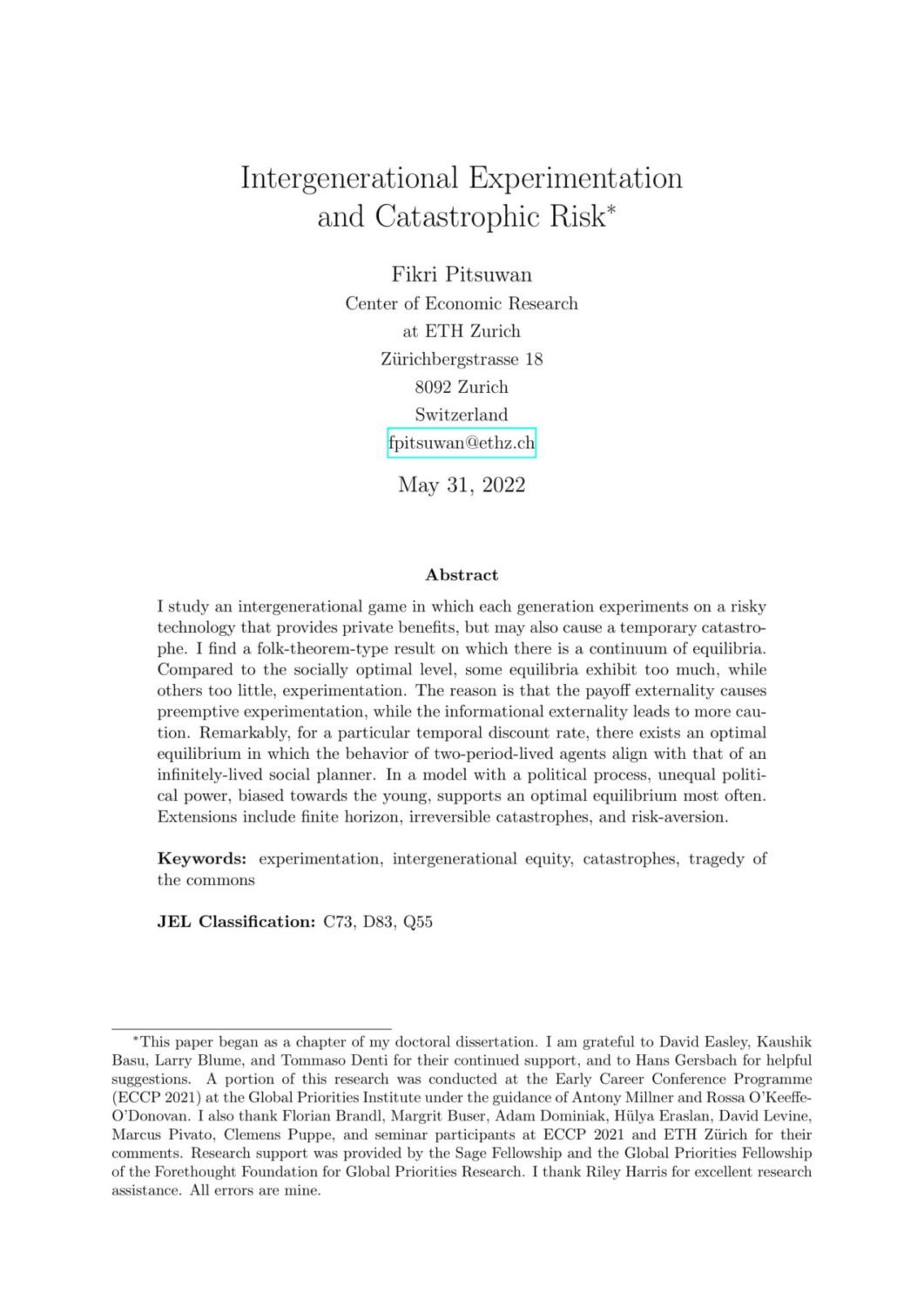Intergenerational experimentation and catastrophic risk
Fikri Pitsuwan (Center of Economic Research, ETH Zurich)
GPI Working Paper No. 6 - 2022
I study an intergenerational game in which each generation experiments on a risky technology that provides private benefits, but may also cause a temporary catastrophe. I find a folk-theorem-type result on which there is a continuum of equilibria. Compared to the socially optimal level, some equilibria exhibit too much, while others too little, experimentation. The reason is that the payoff externality causes preemptive experimentation, while the informational externality leads to more caution. Remarkably, for a particular temporal discount rate, there exists an optimal equilibrium in which the behavior of two-period-lived agents align with that of an infinitely-lived social planner. In a model with a political process, unequal political power, biased towards the young, supports an optimal equilibrium most often. Extensions include finite horizon, irreversible catastrophes, and risk-aversion.
Other working papers
Welfare and felt duration – Andreas Mogensen (Global Priorities Institute, University of Oxford)
How should we understand the duration of a pleasant or unpleasant sensation, insofar as its duration modulates how good or bad the experience is overall? Given that we seem able to distinguish between subjective and objective duration and that how well or badly someone’s life goes is naturally thought of as something to be assessed from her own perspective, it seems intuitive that it is subjective duration that modulates how good or bad an experience is from the perspective of an individual’s welfare. …
Economic growth under transformative AI – Philip Trammell (Global Priorities Institute, Oxford University) and Anton Korinek (University of Virginia)
Industrialized countries have long seen relatively stable growth in output per capita and a stable labor share. AI may be transformative, in the sense that it may break one or both of these stylized facts. This review outlines the ways this may happen by placing several strands of the literature on AI and growth within a common framework. We first evaluate models in which AI increases output production, for example via increases in capital’s substitutability for labor…
Measuring AI-Driven Risk with Stock Prices – Susana Campos-Martins (Global Priorities Institute, University of Oxford)
We propose an empirical approach to identify and measure AI-driven shocks based on the co-movements of relevant financial asset prices. For that purpose, we first calculate the common volatility of the share prices of major US AI-relevant companies. Then we isolate the events that shake this industry only from those that shake all sectors of economic activity at the same time. For the sample analysed, AI shocks are identified when there are announcements about (mergers and) acquisitions in the AI industry, launching of…

